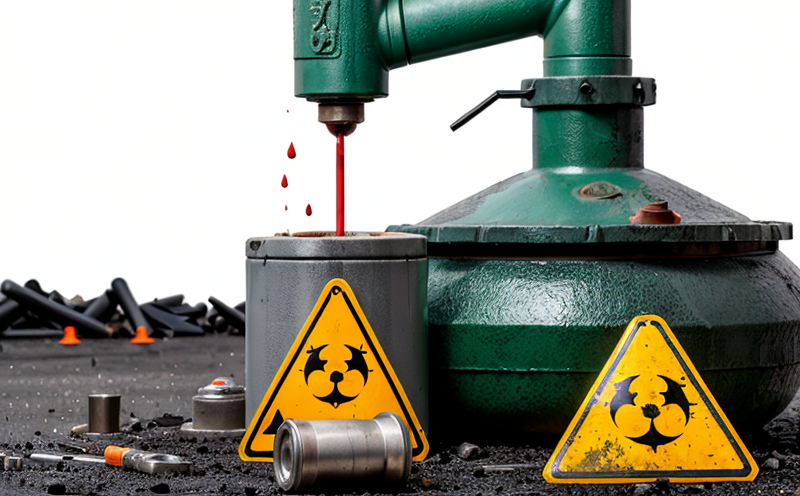Battery Hazardous Substance Leak Testing
At our laboratory, we specialize in providing comprehensive testing services to ensure that batteries meet stringent safety and environmental standards. This service is particularly critical for manufacturers of rechargeable and non-rechargeable batteries used in a wide range of products from consumer electronics to automotive components.
The process involves the identification and quantification of hazardous substances that may be present in or released by a battery during its lifecycle. Our testing methods are designed to comply with international standards such as Directive 2011/65/EU on the restriction of certain hazardous substances (RoHS), Directive 2006/66/EC concerning the limitation of certain hazardous substances in electrical and electronic equipment, and IEC 62396 for battery specifications.
Our team of experts uses advanced analytical techniques to detect even trace amounts of hazardous materials like lead (Pb), mercury (Hg), cadmium (Cd), hexavalent chromium (Cr(VI)), polybrominated biphenyls (PBB) and polybrominated diphenyl ethers (PBDE). These substances are known for their toxic, carcinogenic or reproductive effects. The testing is performed on various parts of the battery including electrodes, electrolytes, separators, casing materials, and other components that could potentially interact with the environment.
During specimen preparation, we ensure that each sample is representative of the batch it comes from. This involves disassembly, cleaning, and handling procedures that minimize contamination while preserving the integrity of the test material. Once prepared, samples are subjected to a series of tests designed to simulate real-world conditions under which they might be exposed to stress or damage.
The testing process typically includes:
- Visual inspection for any visible signs of leakage or corrosion
- Physical and chemical analysis using techniques like X-ray fluorescence (XRF), inductively coupled plasma mass spectrometry (ICP-MS), and gas chromatography-mass spectrometry (GC-MS)
- Solubility testing to determine the amount of hazardous substance that can dissolve into a liquid medium
The results are detailed in a comprehensive report that outlines all findings along with recommendations for corrective actions if necessary. Compliance with relevant regulations is crucial not only for legal reasons but also because it helps protect public health and the environment.
By partnering with us, you can rest assured that your batteries will undergo rigorous evaluation ensuring they meet high standards of safety and sustainability. Our commitment to accuracy, precision, and reliability makes us a trusted partner in this field.
Industry Applications
- Consumer electronics manufacturers who need to ensure their products comply with RoHS Directive
- Automotive companies developing electric vehicles and hybrid systems where battery integrity is paramount
- Industrial firms producing large-scale batteries for energy storage solutions
- Telecommunications providers requiring certification of their equipment before market release
Quality and Reliability Assurance
The quality assurance process at our laboratory is designed to provide consistent, reliable results every time. We adhere strictly to established protocols and use state-of-the-art equipment calibrated regularly to maintain accuracy.
Our team employs rigorous quality control measures throughout the testing lifecycle from initial sample receipt through final report issuance. This includes strict adherence to standard operating procedures (SOPs), regular calibration checks, participation in proficiency testing programs, and continuous training for our staff on new technologies and methodologies.
We also offer additional value-added services such as consulting on best practices for minimizing hazardous substance use within your production processes. By leveraging these insights early in the design phase, you can reduce risks associated with non-compliance while enhancing overall product performance.
International Acceptance and Recognition
Our testing services are recognized internationally for their accuracy and reliability. Our certifications include ISO/IEC 17025:2017 accreditation, which ensures that our facilities meet the highest standards of competence in technical testing and calibration.
We have been awarded compliance with ISO 9001:2015 for quality management systems, confirming our commitment to continuous improvement. Our clients benefit from this by obtaining results that are accepted worldwide without additional testing or validation steps.
Our network of international partnerships allows us to provide seamless services across borders ensuring consistency regardless of location. Whether you're based in Europe, Asia, North America, or elsewhere, you can trust our expertise and global reach to meet your unique needs effectively.





